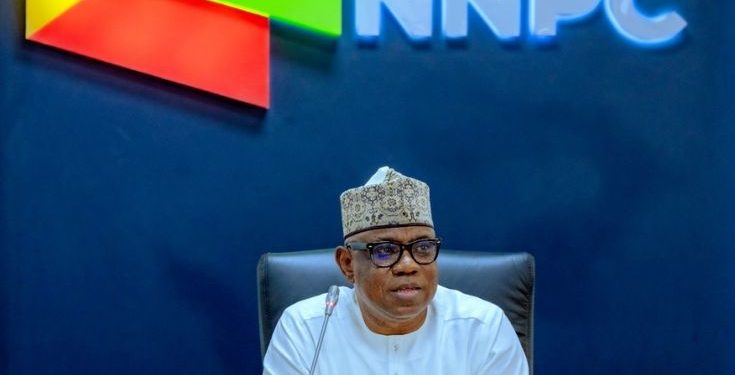The Nigerian National Petroleum Company Limited (NNPCL) is considering the sale of the country’s three major refineries Warri, Port Harcourt, and Kaduna as part of a comprehensive strategic review of its downstream operations. This was disclosed by the Group Chief Executive Officer of NNPCL, Bayo Ojulari, during an exclusive interview with Bloomberg on the sidelines of the 9th Organisation of Petroleum Exporting Countries (OPEC) International Seminar held in Vienna, Austria.
Ojulari stated that the move to possibly sell the refineries will depend on the outcome of an ongoing performance evaluation and asset review set to conclude by the end of 2025. According to him, while the company has made substantial investments to revive these aging assets, the process has been more complex and less productive than expected, prompting NNPCL to reassess the long-term viability of its legacy refining infrastructure.
A Shift Toward Privatization: Strategic Review in Progress
At the heart of this potential divestment is NNPCL’s ongoing downstream business review. Ojulari made it clear that all options are on the table, including full or partial privatization of non-performing state-owned assets.
“We’ve made quite a lot of investments in our refineries over the last several years and brought in a lot of technology. We’ve been challenged some of those technologies have not worked as expected so far,” Ojulari said. “Also, when you are refining a very old refinery that has been abandoned for some time, what we found is that they are a little bit more complicated.”
This admission reveals that the rehabilitation of the refineries has not yielded the intended operational outcomes. Despite multiple promises and projected timelines over the years, the refineries have yet to consistently contribute to domestic petroleum refining in any substantial way.
Ojulari added that the sale of the refineries is “not out of the question,” suggesting a growing openness within the NNPCL management to leverage private sector involvement to reduce inefficiency and financial burden.
A Costly Burden: Why NNPCL Might Sell the Refineries
The Port Harcourt, Warri, and Kaduna refineries have long been a source of controversy and financial strain. Collectively, the refineries have consumed billions of dollars in turnaround maintenance (TAM) with little return on investment. The Port Harcourt Refinery, for example, briefly resumed operations in late 2024 after years of rehabilitation, only to shut down again in May 2025 due to technical issues.
The Warri and Kaduna refineries have also undergone extensive revamp contracts and financing arrangements, yet neither has successfully returned to stable operations.
Ojulari emphasized that securing oil pipelines and refining older equipment are major cost drivers. The company is currently spending an estimated $25 to $30 per barrel to process crude, primarily due to the high cost of securing Nigeria’s vulnerable pipeline network. Despite this, Ojulari said NNPCL has achieved “100% availability” of secured pipelines, an achievement that still comes with elevated operational costs.
Current Refinery Status – 2025 Snapshot
Here is an overview of Nigeria’s three major state-owned refineries under NNPCL as of mid-2025:
- Port Harcourt Refinery (PHRC): Capacity of 150,000 barrels per day (bpd). Temporarily restarted operations in November 2024 but was shut down in May 2025 for additional repairs.
- Warri Refinery: Capacity of 125,000 bpd. Rehabilitation efforts are ongoing. Limited test runs reported in Q1 2025 but not fully operational.
- Kaduna Refinery: Estimated capacity of 110,000 bpd. Still undergoing repairs with no definitive restart date announced.
Combined, these refineries have the capacity to process over 380,000 bpd. However, years of neglect, mismanagement, and obsolete technology have rendered them largely inactive for the better part of the last two decades.
Upstream Focus: Oil and Gas Production Targets
While NNPCL reconsiders its downstream refining strategy, it is doubling down on its upstream targets. According to Ojulari, the company aims to increase oil production from the current 1.6 million barrels per day to 1.9 million barrels per day by the end of 2025, and to 2.06 million barrels per day by 2027. Gas production is also projected to grow from 7 billion cubic feet per day to 10 billion cubic feet per day within the same time frame.
This shift in focus suggests a broader pivot toward oil and gas exploration and production as the company seeks more reliable revenue streams in an increasingly competitive energy market.
Dangote Refinery’s Influence on NNPCL Strategy
One cannot overlook the role of the Dangote Refinery, Africa’s largest private refinery, in shaping the broader context of Nigeria’s refining landscape. The 650,000 bpd facility began operations in 2023 and has quickly become a central player in Nigeria’s fuel supply chain.
The success of the Dangote Refinery has effectively cast a long shadow over the state-owned refineries, which continue to struggle despite significant public investment. This private-sector success story may be indirectly accelerating NNPCL’s willingness to divest its unproductive assets and adopt a new business model in line with global energy trends.
Stakeholder Reactions and Implications
The potential sale of Nigeria’s refineries is expected to generate mixed reactions. Proponents argue that privatization will enhance efficiency, attract investment, and reduce the burden on public finances. Critics, however, fear that handing over such strategic assets to private hands may lead to higher fuel prices and the loss of government control over national energy security.
Moreover, any sale of these assets would have ripple effects across the oil and gas ecosystem—impacting job creation, downstream supply chains, foreign investment prospects, and local content participation.
What Happens Next?
The Nigerian public and energy stakeholders will be watching closely as NNPCL’s 2025 strategic review progresses. Key milestones to expect include:
- Completion of the full downstream review by Q4 2025.
- Possible government announcement on the sale or retention of refineries by early 2026.
- Potential commencement of bidding processes or privatization frameworks, subject to approval by the Federal Executive Council (FEC).
The decisions made over the next six to twelve months could redefine the future of petroleum refining in Nigeria for decades to come.
























































